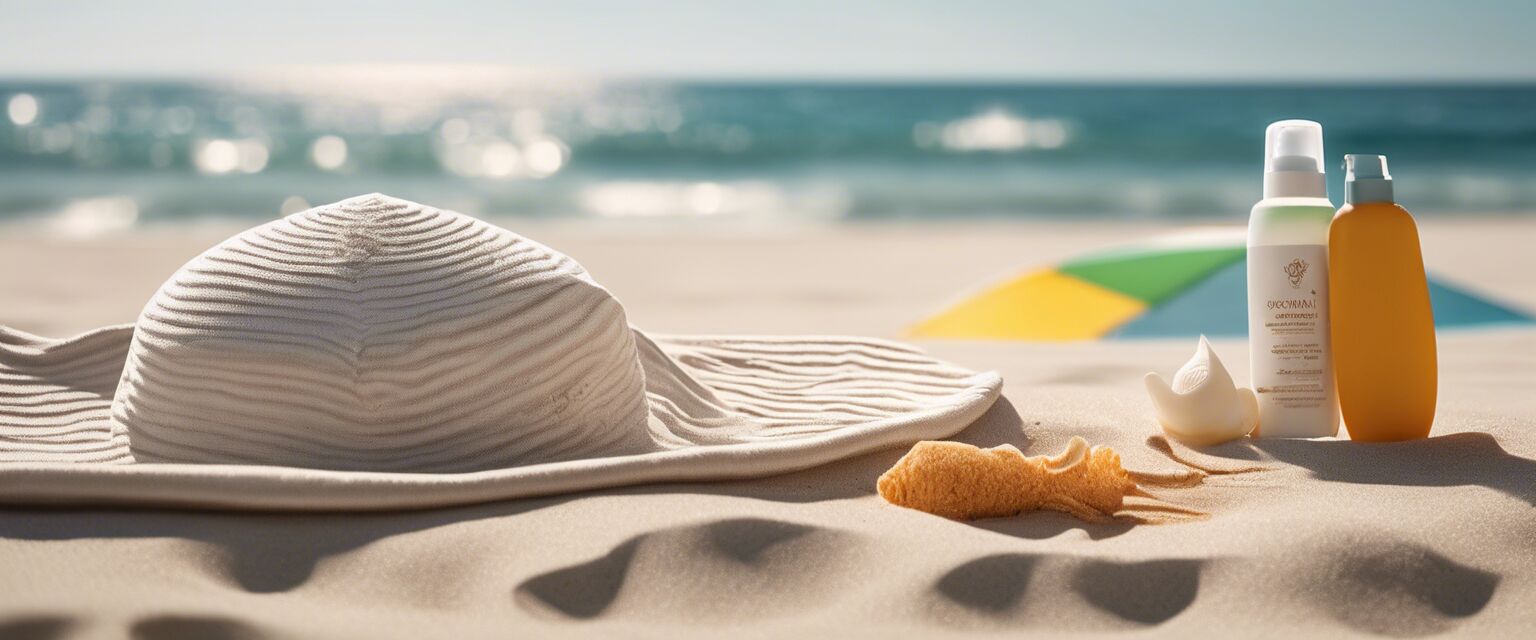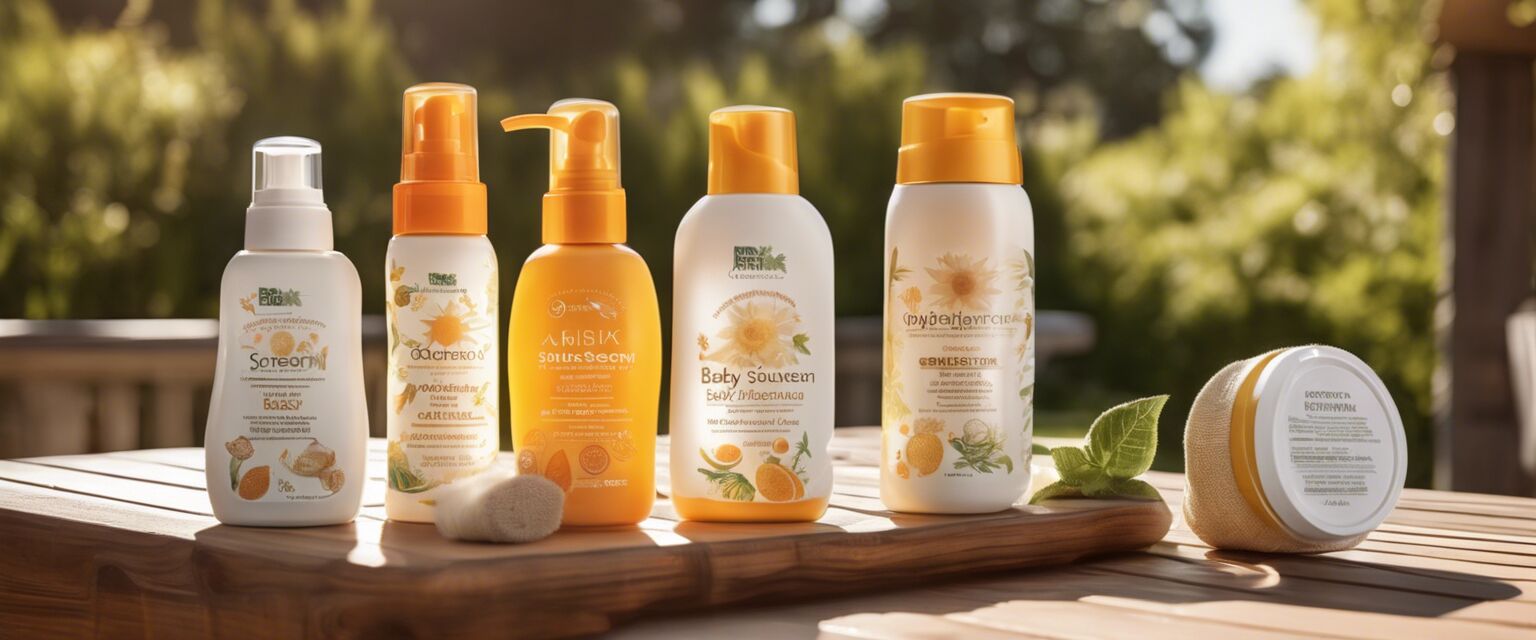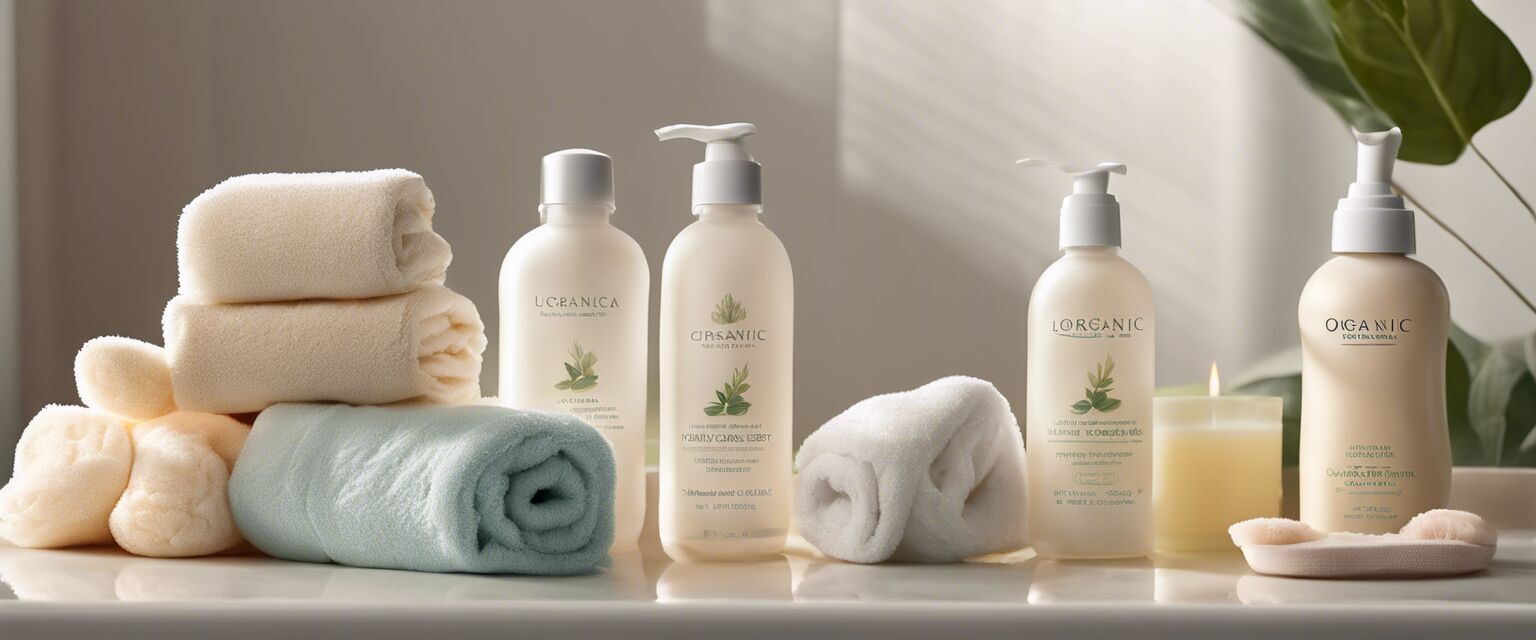
Organic Baby Sunscreens
Key Takeaways
- Organic sunscreens are formulated with safe, natural ingredients.
- Look for broad-spectrum protection to shield against UVA and UVB rays.
- Always patch test new products to check for allergies.
- Consider water-resistant options for added protection during playtime.
- Explore our categories for more organic baby skincare products.
Choosing the right sunscreen for your baby is crucial for their sensitive skin. Organic baby sunscreens provide a safer alternative to chemical-based options. In this guide, we will delve into the features of organic sunscreens, their benefits, and how to choose the best one for your little one.
Why Choose Organic Baby Sunscreens?
Organic baby sunscreens are made from natural ingredients that are gentle on the skin. Here are a few reasons why they are a preferred choice:
- Safe Ingredients: Organic sunscreens avoid harmful chemicals.
- Eco-Friendly: Many organic brands are committed to sustainability.
- Hypoallergenic: Less likely to cause skin irritation.
Understanding SPF and Broad-Spectrum Protection
SPF, or Sun Protection Factor, measures how well a sunscreen protects against UVB rays. Broad-spectrum protection means it shields against both UVA and UVB rays, which is essential for complete skin protection.
How to Choose the Right Sunscreen
When selecting an organic sunscreen for your baby, consider the following:
| Feature | What to Look For |
|---|---|
| SPF Rating | SPF 30 or higher is recommended for babies. |
| Water Resistance | Choose water-resistant formulas if your baby will be swimming. |
| Ingredients | Look for zinc oxide or titanium dioxide as active ingredients. |
| Skin Type | Consider your baby's skin type and any allergies. |
Common Ingredients in Organic Sunscreens
Here are some common ingredients you might find in organic baby sunscreens:
- Zinc Oxide: A mineral that provides broad-spectrum protection.
- Titanium Dioxide: Another mineral that offers UV protection.
- Natural Oils: Such as coconut oil or jojoba oil for hydration.
How to Apply Sunscreen on Your Baby
Proper application is key to ensuring your baby is protected from the sun:
- Apply sunscreen 15-30 minutes before sun exposure.
- Use a generous amount, covering all exposed skin.
- Reapply every two hours, or more often if swimming or sweating.
Pros and Cons of Organic Baby Sunscreens
Pros
- Made with natural ingredients.
- Less likely to irritate sensitive skin.
- Environmentally friendly options available.
- Effective broad-spectrum protection.
Cons
- May leave a white cast on the skin.
- Some formulations may feel greasy.
- Higher price point compared to conventional products.
Popular Organic Baby Sunscreen Brands
While we won't recommend specific products, here are some brands known for their organic sunscreens:
Frequently Asked Questions
Can I use regular sunscreen on my baby?
It is best to use sunscreen specifically formulated for babies, as they are gentler and designed for sensitive skin.
At what age can I start using sunscreen on my baby?
You can start using sunscreen on babies over six months old. For younger babies, it's best to keep them shaded and covered.
Tips for Sun Safety
Beginner's Section
- Dress your baby in lightweight, long-sleeved clothing.
- Use hats with brims to protect the face.
- Avoid sun exposure during peak hours (10 AM to 4 PM).
Conclusion
Choosing the right organic sunscreen is essential for protecting your baby's delicate skin. By understanding the ingredients, proper application, and sun safety tips, you can ensure your little one enjoys the sunshine safely. Explore our organic baby lotions and organic baby oils for complete skincare.
Additional Resources
For more information on organic baby skincare, check out our other categories:










